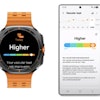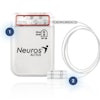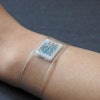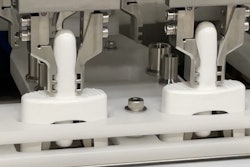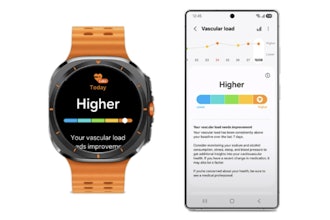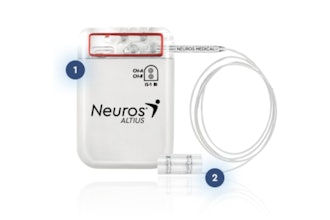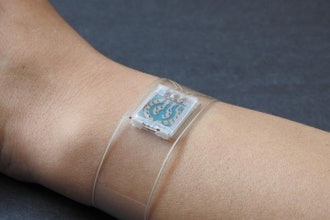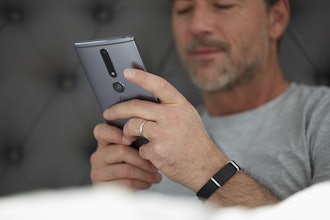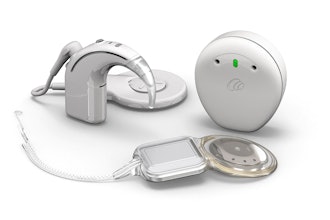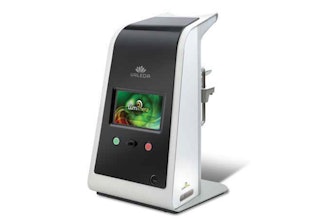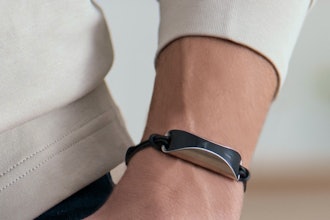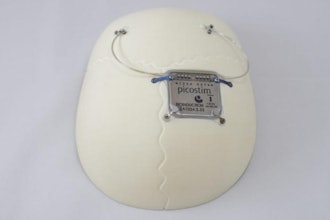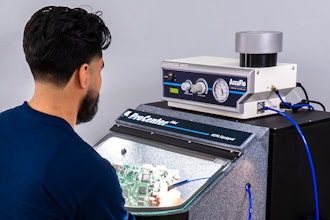
Is what's on your wrist more valuable to your health than what's in your medicine cabinet?
A new survey of 2,000 Americans revealed consumer sentiments about purchasing, using, and relying on medical devices for vital health information sharing.
More than one in four consumers (28%) reported they have had a personal medical device alert them to a pending health issue.
When alerted, 84% found the data "extremely" or "very" valuable, and 76% said they've had their health issue successfully diagnosed after consulting with a doctor.
Commissioned by Propel Software and conducted by Talker Research, the study found 80% of consumers own at least one medical device, including: blood pressure monitors (45%), electric toothbrushes (39%), fitness trackers and pedometers (24%), smartwatches or smart rings (23%) and blood-glucose monitors (18%).
However, many were unaware of the scope of medical devices available today and their benefits.
While 40% correctly identified medical devices as "any device that can track health information," 27% believe medical devices are "any product that interacts with their body," and another 20% believe they're "devices that are specifically designed and used in hospital settings."
Limited Awareness of Everyday Medical Devices
The majority of respondents were aware of certain medical devices — blood pressure monitors (88%), heart rate monitors (86%) and blood-glucose monitors (84%).
But they were unaware that some everyday devices like electric toothbrushes (33%), baby monitors (20%) and smartwatches /smart rings (18%) also fall under the definition of a medical device.
Those who own medical devices said they were motivated to purchase their devices due to recommendations from their doctor (47%), friends and family (34%) and product reviews (21%).
"The knowledge and speed at which these devices – from blood pressure and glucose monitors to baby monitors – provide consumer feedback continues to accelerate, and it's fascinating to witness how medical device manufacturers are quickly adapting to market and consumer feedback and preferences. At the same time, consumer product companies are increasingly entering the medical device market," said Chuck Serrin, Vice President Industry Marketing, Medical Device & Life Sciences at Propel Software. "Tech-savvy consumers embracing the convenience and real-time health alerts of these devices will forever change how we all think about our personal health care."
Key Factors Driving Medical Device Purchases
The study also found many purchase decisions were influenced by insurance recommendations and coverage (39%), doctor testimonials (38%) and FDA approval (36%).
In addition, 63% of consumers reported they would likely pay a nominal subscription fee if required to access analytics, online resources, recall information, and software-based product enhancements on a regular basis.
Two in three (68%) also said it was key that their medical devices have a consumer-friendly appearance — looking inconspicuous and designed for everyday wear and use.
When it comes to data information sharing, two in three respondents stated they'd be comfortable with their devices either sharing information over the internet directly with their general practitioner (62%) or with a specialist they've met before (66%).
Both women (61%) and men (63%) reported feeling comfortable sharing health feedback from their device online with medical practitioners.
"Surprisingly, brand loyalty was not top of mind with medical device consumers — 47% claim they don't have a 'brand' preference as long as the device is capable and reliable," Serrin added. "However, consumers reported that product reviews and recommendations greatly influence purchasing decisions.
"With 71% reporting devices were more trustworthy when accompanied directly by doctors' office reviews, it's essential that device manufacturers get products right so favorable reviews are posted quickly to influence sales."
What Devices Do Americans Own?
A blood pressure monitor – 45%An electric toothbrush – 39%Fitness tracker/pedometer – 24%A smartwatch/ring – 23%A blood-glucose monitoring device – 18%A heart rate monitor – 14%A blood-oxygen monitoring device – 13%A sleep tracking device – 11%A CPAP machine – 11%Hearing aids – 8%Baby monitoring smart devices – 5%
Survey Methodology:
Talker Research surveyed 2,000 general population Americans; the survey was commissioned by Propel Software and administered and conducted online by Talker Research between Oct. 4 and Oct. 7, 2024.

